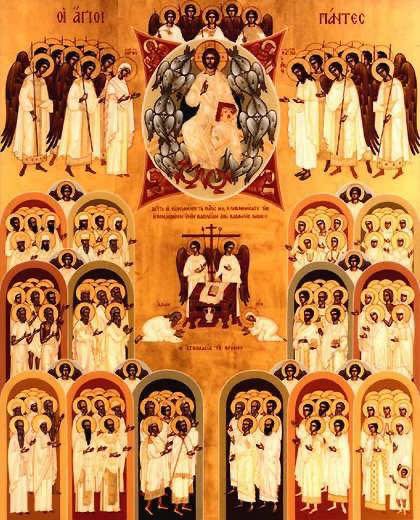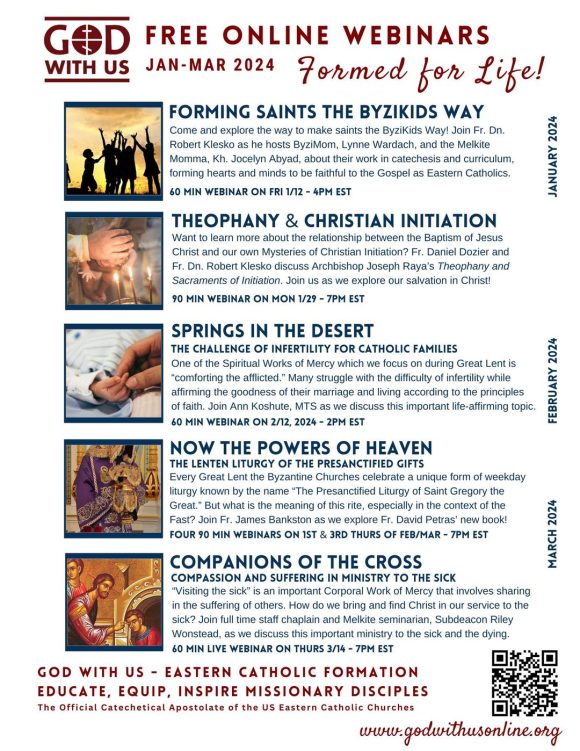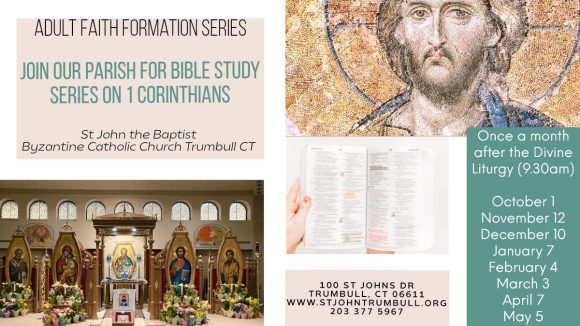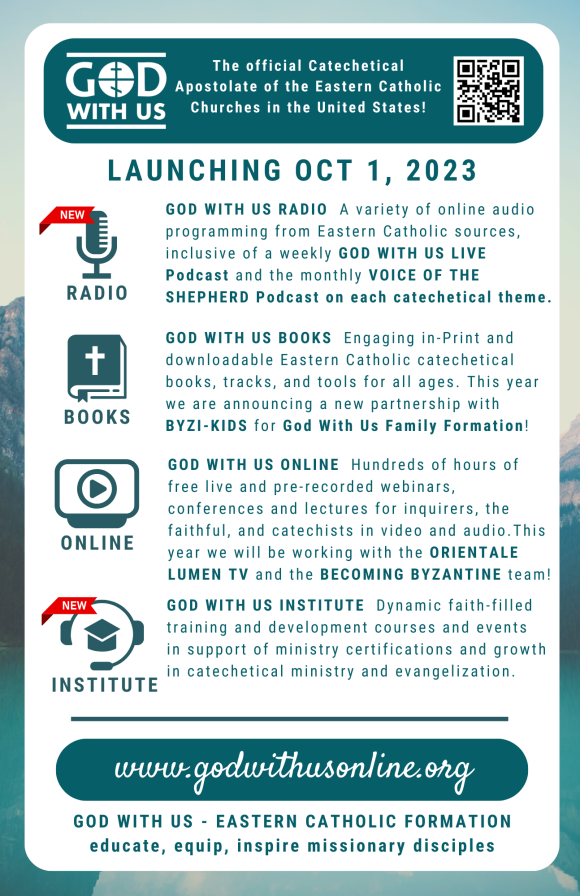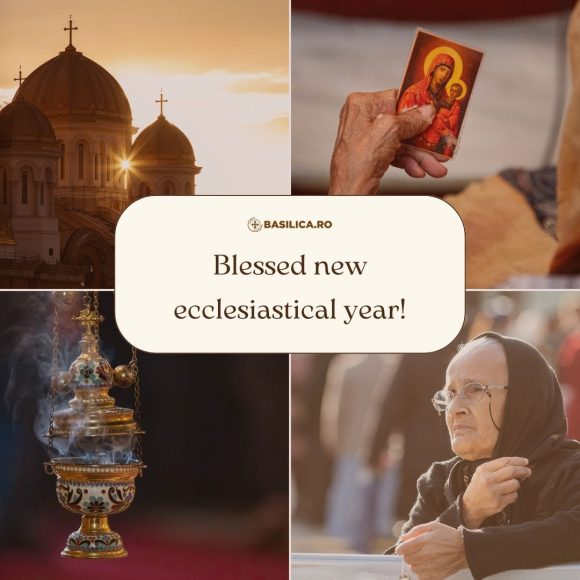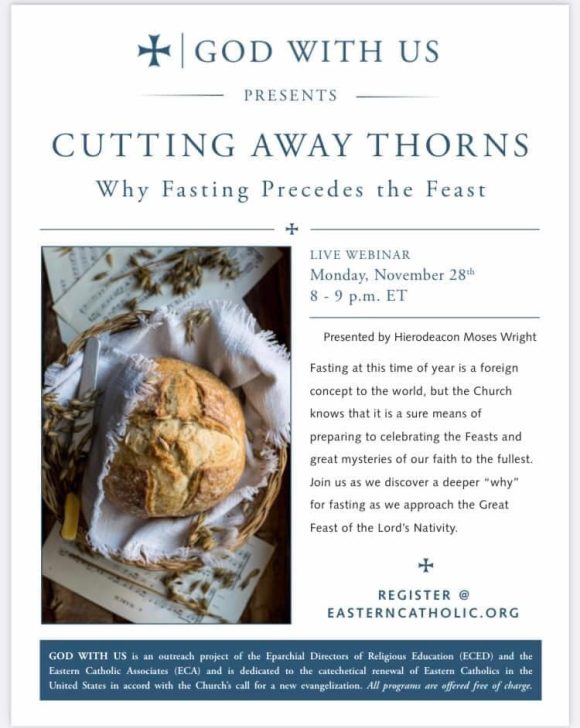Category: Adult Faith Formation
All Souls
There are 5 All Soul’s Saturdays. 2, 3, and 4 were on Saturdays during the Great Fast on days that had no other commemoration (e.g. the Miracle of Theodore and Akathistos). This is due to the liturgical law that fasting periods are more conservative and retain ancient customs. Saturday, the day our Lord was in the tomb was a day for remembering the departed, and that has persisted until the present in Lent.
The All Souls’ Saturday before Meatfare Sunday was due to the Church Year. Meatfare Sunday was the Gospel of the Last Judgment and, in a way, concluded the regular cycle of Gospel beginning with Pascha and lasting until the next Great Fast (beginning with Cheesefare Sunday). It was natural, therefore, to remember the departed as we pray for all before the final and last judgment. The fifth All Souls’ Saturday the day before Pentecost does not have clear origins. Some have said that it is the Christianization of the pagan feast of Rosalia, which remembered virgins who have died a violent death. Their souls were locked in trees and were released on this feast day.
The Christians generalized this into a general feast for all the departed. Some find this controversial, since the ideology is that Christians owe nothing to pagans. We have no concrete evidence one way or the other. It might be connected with All Saints, which in the Byzantine Church was the Sunday after Pentecost, but this does not explain the one week delay. At any rate, though Pentecost is the Christian feast of the 50th day, corresponding directly to the Jewish feast of the Mt. Sinai covenant (note the Upper Room), it was also called Rusalka (in Slavonic) since it happened closely to the pagan feast.
The All Saints feast was originally “All Martyrs,” namely those who died a violent death in witness to Christ. Rome originally celebrated it at the same time as the Byzantines, but moved it to November 1, the Dedication of the Pantheon, the pagan temple made into the Christian Church of the All Saints. In our faith and worship, though, this all has a clearly Christian meaning.
Iconography workshop
God With Us January news
GOD WITH US January Newsletter with the Spring webinars and the Dwelling Place!
Adult Faith Formation with St Paul
All are welcome.
Resources for your faith development
A new liturgical year begins today, a new year of grace
“The beginning of the New Ecclesiastical Year urges us to sanctify the time of our earthly life as a time of salvation.”
– Patriarch Daniel
September 1st is known as the first day of the New Liturgical Year for those who follow the Byzantine Church. It’s an observance we had since the 4th century. Here is Father David Petras’ brief explanation:
We call this the “Church” New Year, but it was, of course, the civil New Year of the Byzantine Emperor. The book, Mapping Time, by E. G. Richards, says, “In AD 312 Constantine had instituted a 15-year cycle of indications (censuses of people’s ability to pay taxes). These started on 1 September …. The Byzantine year started on 1 September and this system was used by the supreme tribunal of the Holy Roman Empire until it was abolished by Napoleon in 1806.” The ancient Roman Empire began the year on January 1, and therefore September was the seventh month (from the Latin word for seven, “septem”). Of course, it is now the ninth month (!) Because of the interpolation of July (for Julius Caesar) and August (for August Caesar). Many seriously advocate making September 1 the New Year again, because, after all, this is the beginning of the school year and fall programs. It would also enable people to get home on dry roads rather than on snow and ice.
In any case, the gospel today has the blessing of our Lord on the New Year, “The Spirit of the Lord is upon me, because he has anointed me to bring glad tidings to the poor. He has sent me to proclaim liberty to captives and recovery of sight to the blind, to let the oppressed go free, and to proclaim a year acceptable to the Lord” (Luke 4:18-19).
Blessings for a New Church Year, which we start today in our Greek Catholic Church!
Th Incarnation and the cross
This online lecture, “The Incarnation and the Cross: Understanding Christ’s Redemptive Act,” is recommended for your adult formation in the faith.
The online lecture is free but you have to register.
For information and to register, visit this link.
Christian fasting???
We are asked to observe several fasts in the course of the year. Some do it; others do not. Some know why the Church encourages us to fast; many have no clue as to why we fast and the spiritual and physical benefits to fasting.
Join our friend, Abouna Moses to learn the “why” behind the fast!
Know about icons
Being that today is the feast day of the apostle and evangelist, St. Luke, who is the patron saint of iconographers and artists, we ought to lift up in prayer all of the iconographers who have given the talent to serve the Lord with beautiful sacred art. This art is not wall decoration; icons are windows opening into the arena of the Divine. I am thinking in particular of Marek Czarnecki of Meriden, CT, who is a terrific, trained and prayerful iconographer.
Here is a beautiful, insightful presentation on holy icons given by his Eminence Metropolitan Kallistos (Ware). He recently reposed in the Lord. The presentation was recorded in 2007 for a meeting of the Orientale Lumine Conference.
